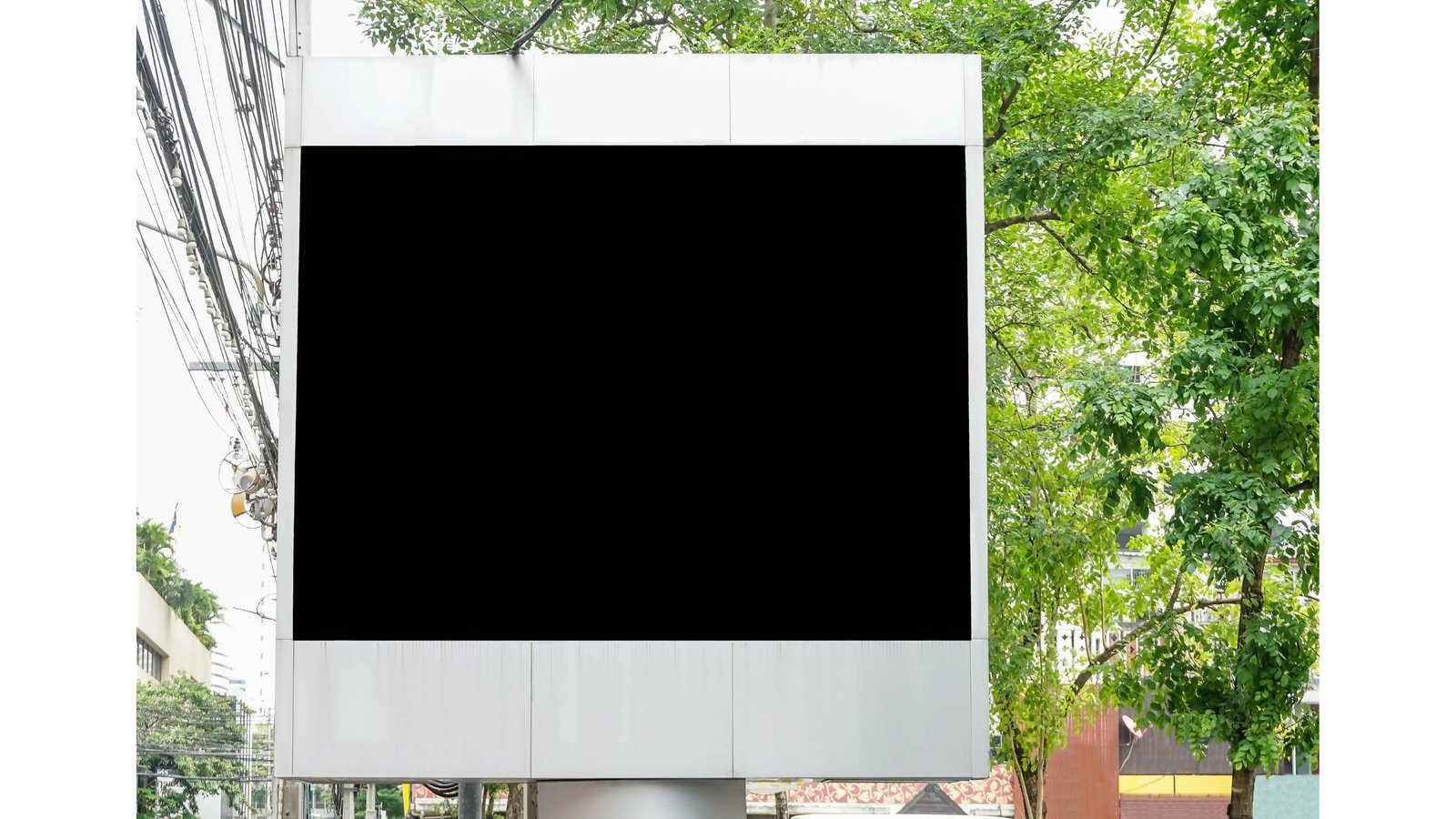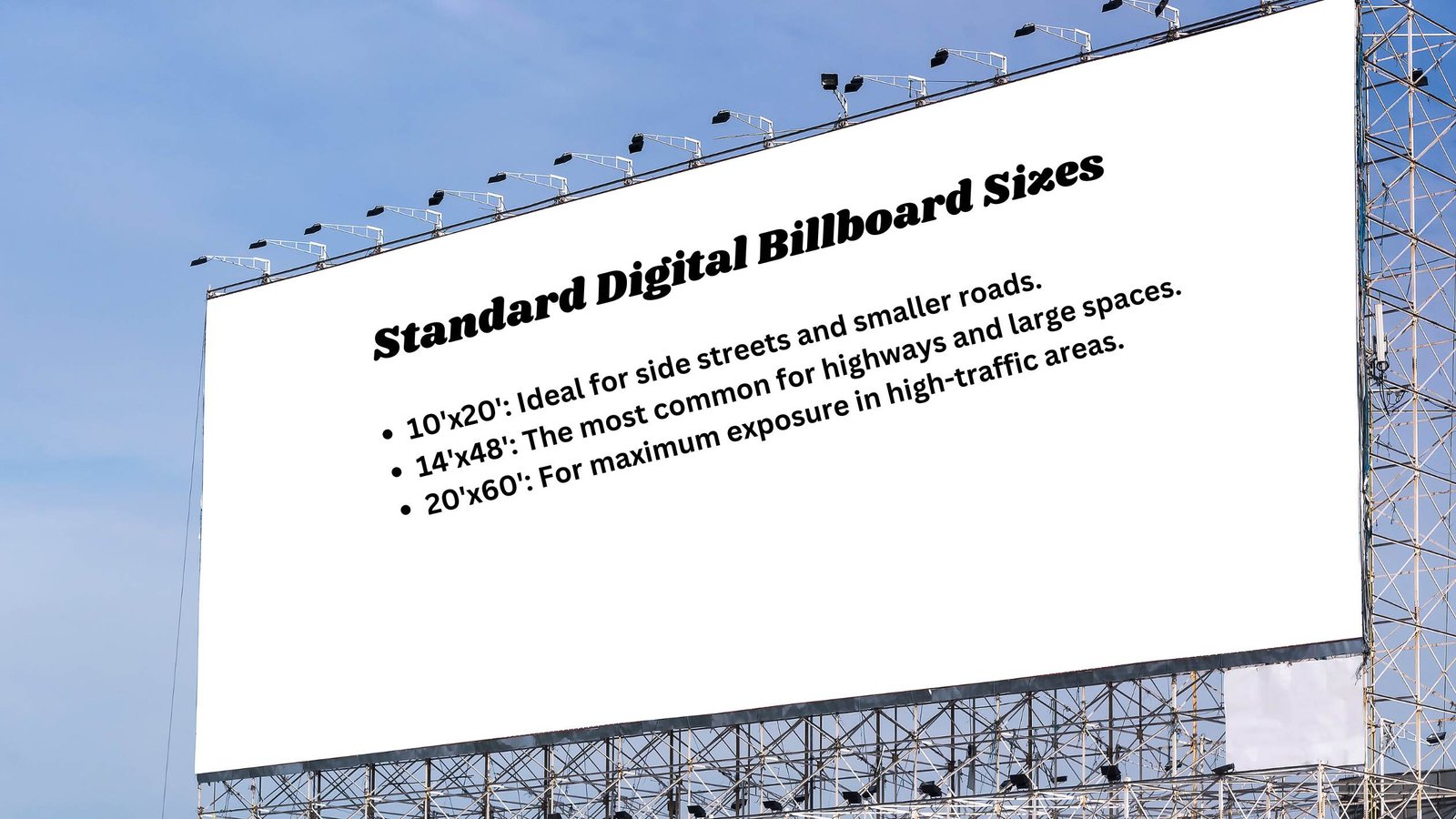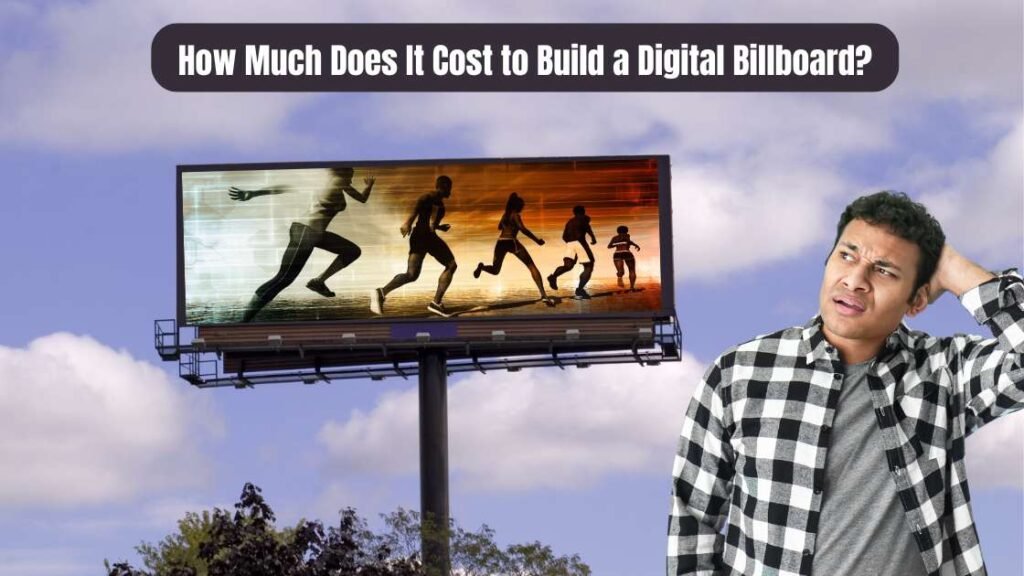In the U.S., the cost to build a digital billboard typically starts around $65,000 and can exceed $300,000. Factors such as size, location, and technology play key roles in determining the price.
Building a digital billboard requires a considerable investment, and the price varies significantly depending on several factors. A high-resolution, smaller billboard in a less competitive market could be on the lower end of the price spectrum, while a larger, state-of-the-art digital billboard in a prime metropolitan area could command the upper range.
Business owners and advertisers need to consider the ongoing operational costs, including maintenance, electricity, and content creation, beyond the initial outlay for hardware and installation.
Understanding these elements is crucial for those aiming to effectively budget for this modern advertising medium. As traditional billboards give way to digital advancements, investing in a digital billboard could mean high visibility and a potentially lucrative return on investment for well-placed ads.
Introduction To Digital Billboards

Digital billboards are the next big leap in outdoor advertising. They offer vivid colors and dynamic content that traditional billboards can’t match.
Businesses of all sizes recognize the value of these high-impact visuals. They grab attention in a world where digital is king. Thinking about digital billboards sparks curiosity about costs. Let’s explore this innovative advertising medium.
The Rise Of Digital Advertising
Digital advertising is soaring. It has transformed the way brands connect with their audience.
Gone are the days of static ads. Today’s world demands flexibility and innovation.
24/7 exposure means non-stop ad possibilities. A digital billboard brings your message to life.
Benefits Of Digital Billboards
- Visibility: LED screens are visible day and night, through rain or shine.
- Flexibility: Update content in real time. No need for physical changes.
- Engagement: Moving images and video content increases engagement.
- Cost-Effective: Reach a broader audience without printing or installation fees.
Key Components And Technology
Embarking on the journey of creating a digital billboard involves understanding key components and technology. These elements shape the cost and functionality of the billboard. They demand careful consideration. Let’s delve into the crucial aspects you need to consider.
Understanding Led Displays

LED displays form the visual core of a digital billboard. These displays come in different resolutions, which affects clarity and detail. Quality and size dictate the price:
- Pixels: Higher pixels mean sharper images but at a higher cost.
- Durability: Outdoor displays need protection from weather. Stronger materials may increase the price.
- Energy efficiency: Some LEDs use less power. This can save money over time.
The choice of LEDs should align with the intended content and viewing distance.
Software Requirements For Content Management
Content management software is vital for billboard operation. This software ensures your content displays correctly. It also allows for scheduling and updates. Consider these points:
| Feature | Description | Impact on Cost |
|---|---|---|
| User Interface | Easy-to-use interfaces may cost more but save on training time. | Varies |
| Functionality | Advanced features like analytics influence price. | Higher |
| Support | Continuous software support ensures smooth operation. | Recurring Cost |
Select software based on needs and budget, remembering it’s an investment in your billboard’s success.
Size And Resolution Variations
In the world of digital advertising, billboards are not one size fits all. A digital billboard’s impact depends on its size and resolution. A well-chosen combination can determine how eye-catching your advertisement will be. Let’s delve into the typical billboard sizes and how resolution plays a crucial role in your digital display’s effectiveness.
Standard Digital Billboard Sizes

Choosing the right size for a digital billboard is essential. Businesses should consider visibility and the environment the billboard will occupy. Standard sizes often include:
- 10’x20′: Ideal for side streets and smaller roads.
- 14’x48′: The most common for highways and large spaces.
- 20’x60′: For maximum exposure in high-traffic areas.
Each size serves different marketing purposes. Smaller billboards are cost-effective for local advertising, while larger ones reach a broader audience.
Determining The Right Resolution
The resolution of the digital billboard dictates the quality of the image. A high-resolution display ensures that even the smallest details are seen from afar. The pixel pitch, measured in millimeters, affects resolution:
| Pixel Pitch | Resolution Quality |
|---|---|
| Less than 10mm: | High for close-up viewing |
| 10mm – 16mm: | Medium, suitable for various distances |
| 16mm and up: | Standard, best for far distances |
Selecting the right resolution is a balance. A high-resolution display may not be necessary for a billboard viewed from a highway. A good rule of thumb is the higher the resolution, the closer viewers can be.
Location Considerations
When thinking about building a digital billboard, location is key. The site impacts your costs and potential profits. Careful planning ensures high visibility and compliance with local laws. Let’s delve into the critical aspects of location when creating your digital billboard.
Site Selection For Maximum Visibility
A prime location for your digital billboard means more eyes on the screen. A spot with heavy foot or vehicle traffic is best. Consider these factors:
- High Traffic Areas: More cars and people mean better exposure.
- Line of Sight: An unobstructed view is crucial for impact.
- Lighting Conditions: Ensure visibility at all hours, especially at night.
Choosing the right location includes studying the area’s demographics. Aligning your billboard location with the right audience boosts the value of your advertising space.
Permits And Zoning Regulations
Understanding the local laws is a must before you invest. Here’s a quick guide:
| Requirement | Details |
|---|---|
| Zoning Laws | Not every area permits digital billboards. Check with local authorities first. |
| Permits | Securing the right permits is essential. The type and cost vary by location. |
| Safety Compliance | Adhere to regulations that ensure the structure’s safety for everyone. |
In the U.S., the Highway Beautification Act (23 U.S.C. 131) and FHWA guidance apply on regulated routes, and many jurisdictions follow the OAAA’s nighttime brightness limit of ≤0.3 foot-candles above ambient.
Initial Investment Breakdown

Embarking on the journey of building a digital billboard requires a clear understanding of the costs involved. This breakdown dives into the initial investments needed for a successful installation. We’ll go over every element, from hardware expenses to installation and operational costs. Proper planning ensures a more accurate budget estimation, leading to a smoother project execution.
Cost Of Hardware And Components
Several core components make up the hardware for a digital billboard. Prices vary depending on quality, size, and capabilities.
- LED Modules: These are the main display elements.
- Controller: This component manages content on the screen.
- Structure: Supports the entire billboard.
- Power Supply: Essential for electrical needs.
A detailed table below shows common component costs:
| Component | Average Cost |
|---|---|
| LED Modules | $1,600 – $3,200/m2 |
| Controller | $200 – $1,000 |
| Structure | $5,000 – $10,000 |
| Power Supply | $500 – $1,500 |
Installation And Operational Expenses
Beyond the hardware, significant costs come with setting up and running a digital billboard.
- Installation labor often incurs an hourly rate.
- Electrical work ensures safe power connections.
- Maintenance is vital for long-term performance.
- Software for scheduling and content management.
Expect the following range for these expenses:
| Expense | Average Cost Range |
|---|---|
| Installation Labor | $2,000 – $10,000 |
| Electrical Work | $1,000 – $5,000 |
| Maintenance | $500 – $2,000/yr |
| Software | $300 – $1,000/yr |
Ongoing Costs And Maintenance
Understanding the ongoing costs and maintenance for a digital billboard is crucial. Once the digital billboard is up and running, the expenses do not stop there. Careful budgeting for future costs ensures the billboard remains an effective advertising tool.
Energy Consumption And Efficiency
Energy costs can be a significant part of maintaining a digital billboard. Billboards use LEDs, which are more efficient than traditional bulbs. Yet, they still require substantial power, especially for larger displays. The cost varies depending on local electricity rates, which must be factored into the monthly expenses.
| Billboard Size | Average Power Usage | Estimated Monthly Cost |
|---|---|---|
| 10 x 20 feet | ~1,200–1,800 kWh | $140 – $270 |
| 14 x 48 feet | ~2,000–2,500 kWh | $240 – $375 |
Regular Maintenance Needs
Digital billboards require ongoing maintenance to ensure longevity and optimal performance. Regular check-ups prevent potential issues and maintain image quality. Costs will vary based on the service provider and location but should not be overlooked.
- Inspection of hardware components
- Software updates and troubleshooting
- Cleaning of LED panels to prevent dirt build-up
- Structural checks for weather damage
Scheduling these tasks periodically prevents costly emergency repairs. A maintenance contract might be a wise investment to manage these expenses better.
Customization And Additional Features
Exploring the Customization and Additional Features that determine the cost of building a digital billboard
Each billboard is unique, like a snowflake in the digital sky. To make a billboard shine, consider interactive additions, weatherproofing, and enhanced durability. These elements transform a simple display into an engaging masterpiece.
Interactive Capabilities
Digital billboards with interactive capabilities invite the audience to engage. They turn heads and capture hearts with their dynamic content. These features include:
- Touchscreen functions (more common for pedestrian/retail DOOH than highway billboards)
- Social media integrations
- Real-time data updates
- QR code scanning
Such interactivity can cause the investment to climb. Yet, this cost comes with a return in audience engagement and potential revenue.
Weatherproofing And Durability Enhancements
Ensuring a digital billboard can withstand the elements is non-negotiable. Durability features are a must. They ensure the display remains operational, come rain or shine. Consider these weatherproofing add-ons:
| Feature | Benefit |
|---|---|
| High-quality enclosures | Protects against water and dust |
| UV-resistant screens | Prevents sun damage |
| Sturdy mounting solutions | Ensures stability in windy conditions |
These enhancements contribute to additional costs. Yet, they prolong the lifespan of the billboard, securing your investment.
Return On Investment
Investing in a digital billboard brings up the crucial question – what’s the financial return? Assessing the return on investment, or ROI, involves understanding potential revenues and the timeline for retrieving the initial outlay. It’s about making the billboard cost-effective.
Advertising Revenue Models
Digital billboards generate income through various advertising models:
- CPM (Cost per Thousand Impressions): Advertisers pay based on the number of views.
- Fixed-Rate: A set price for specific time slots, regardless of traffic.
- Dynamic Pricing: Rates change based on demand, time of day, and traffic.
Multiple advertisers can share space, increasing revenue potential. The content is digital, allowing for quick changes and new ads.
Break-even Analysis
To assess the feasibility of a digital billboard investment, a break-even analysis is essential:
| Costs | Timeframe | Revenue Required |
|---|---|---|
| Initial Investment | Short-Term | High |
| Regular Maintenance | Ongoing | Moderate |
| Advertising Sales | Continuous | Incremental |
Understanding when a billboard will start to pay for itself guides pricing and sales strategy.
Calculations consider the costs against expected advertising income. Aim for a reasonable timeframe to break even. This horizon can influence the decision to invest in digital billboard infrastructure.
Potential Challenges And Mitigation Strategies
Building a digital billboard can be complex. There are hurdles along the way. Planning can help overcome these issues.
Dealing With Technical Failures
Digital billboards rely on advanced technology. This tech can fail. It is important to understand common issues.
- Screen malfunctions – The display might face problems.
- Software glitches – Sometimes, the content management system may have bugs.
- Power disruptions – Outages can stop the billboard from working.
Mitigation strategies include having a reliable maintenance team. Regular check-ups can prevent breakdowns. A good warranty can help with repair costs.
Navigating Regulatory Restrictions
Billboard installation is not free from legal checks. Different areas have different rules. Permits are necessary.
| Challenge | Mitigation Strategy |
|---|---|
| Zoning laws | Work with local authorities early in the process. |
| Environmental concerns | Conduct an environmental impact study. |
| Safety regulations | Ensure the billboard meets all safety standards. |
Understanding these local laws is key. An expert in billboard regulations can assist. This reduces the risk of legal problems.
Frequently Asked Questions for How Much Does It Cost to Build a Digital Billboard
How Much Does It Cost To Set Up A Digital Billboard?
In the U.S. (2025), setup typically starts around $65,000 for small-format installs and can exceed $300,000 for full-size highway units, depending on size, location, and technology.
Are Digital Billboards Profitable?
Yes, digital billboards can be profitable. They offer high visibility and flexible, dynamic content that attracts advertisers willing to pay premium rates.
How Much Does A 3d Digital Billboard Cost?
Costs vary widely. Hardware is similar to standard digital billboards, while 3D (anamorphic) creative and premium placements can bring total campaign budgets into the ~$20,000–$300,000+ range.
How Much Does A 14×48 Billboard Cost?
In the U.S., a 14×48 digital billboard’s monthly ad rate typically ranges from $1,500 to $30,000+, with prices varying based on location, visibility, and market conditions.
Conclusion
Understanding the costs of a digital billboard is vital for budgeting in the advertising industry. The investment varies, depending on size, location, and technology. By budgeting for the initial setup and ongoing expenses, businesses can leverage this dynamic advertising medium effectively.
Embrace the digital billboard revolution with a clear financial plan in hand.


